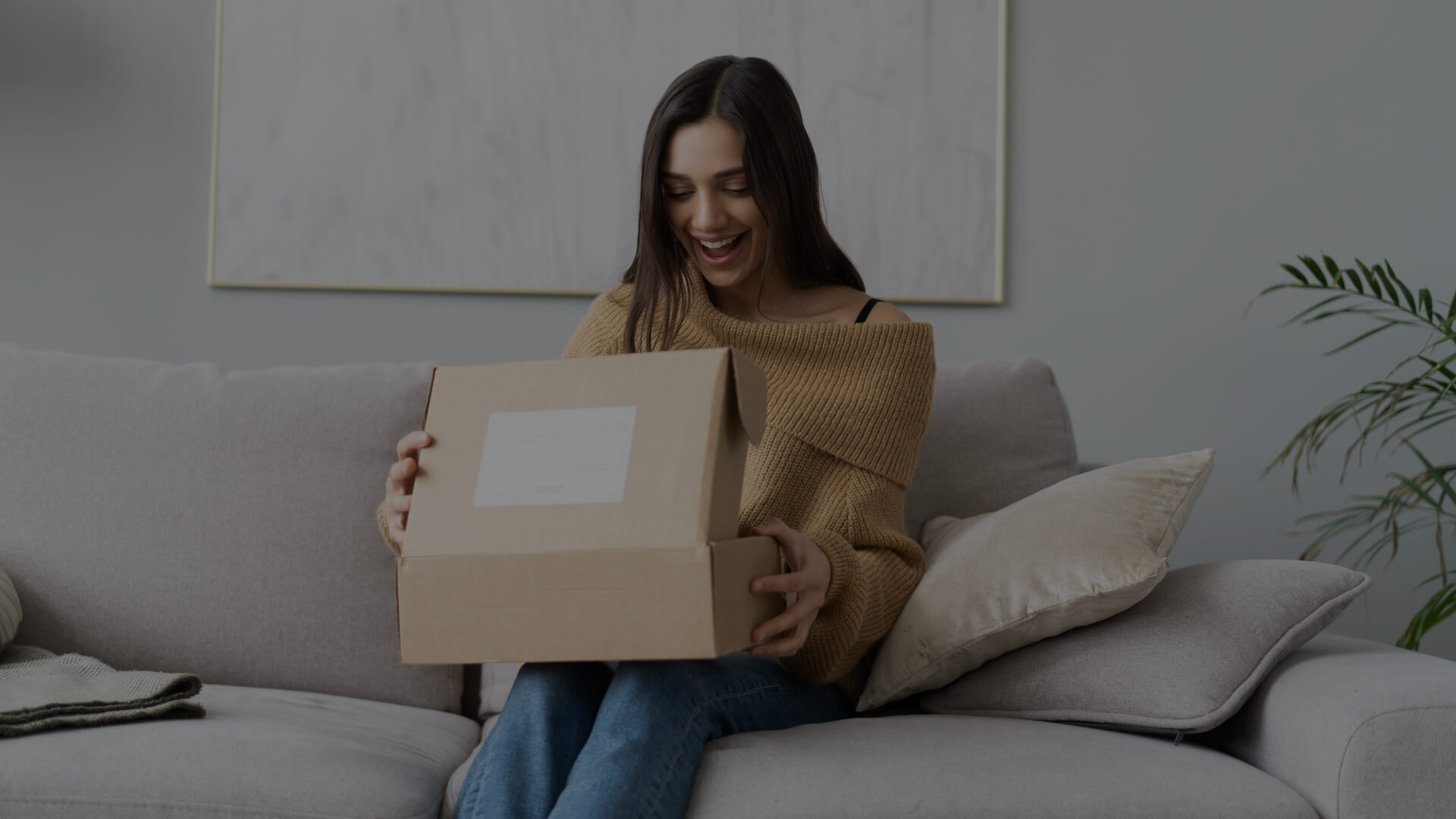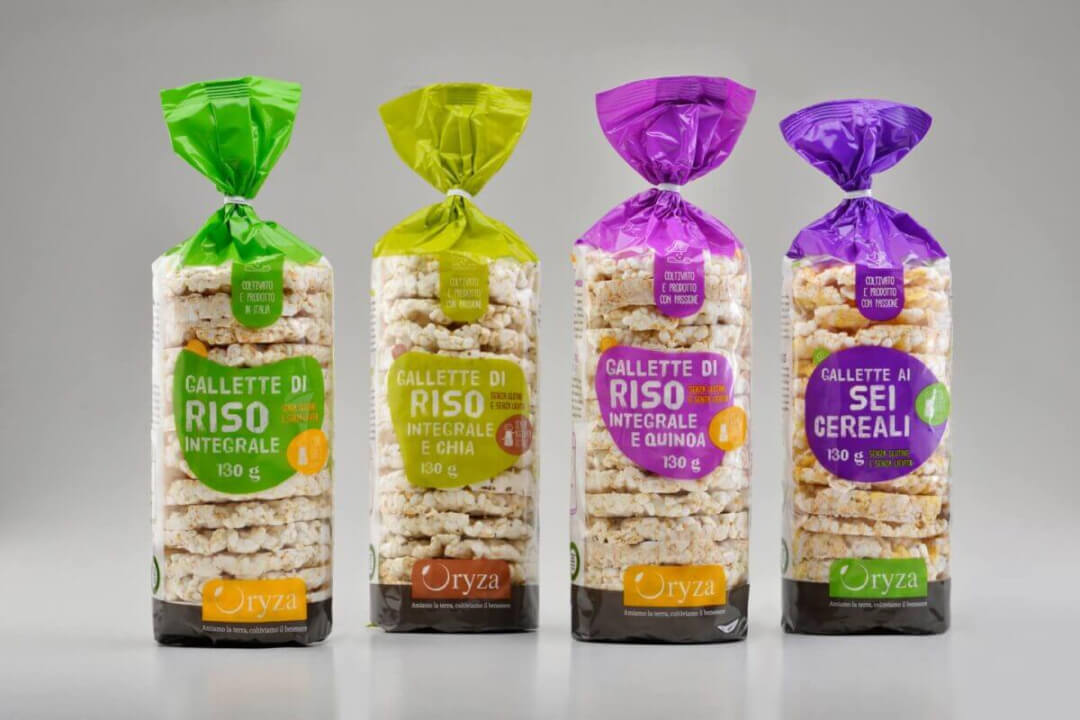Pop Up Next

The creative Virtual Design project took place in Torino, where Italdesign one of the world’s leading companies in the automotive industry required to boost the current user experience of Pop up next, a self-driving transportation system car manufactured by them.
We proposed different types of features and devices that allowed a greater degree of customization of the environment and the space inside the car by creating modular components and integration of a mobile app.
I conducted initial mobility and user research to define key personas, then we developed the concept and the desired user experience. Finally, I played an important role creating visual, UI, UX and motion design.
Company

My role
Strategic Designer, User Experience Designer,
Timeline
2018
Tools Used
Adobe Illustrator, Adobe After Effects, Blender, Figma
User Research
The design process began analyzing the context of use. In this stage we researched about the mobility in Turin and conducted some interviews to get a better understanding of users’ behaviors.
Figure 1. shows purpose of travel in Turin.
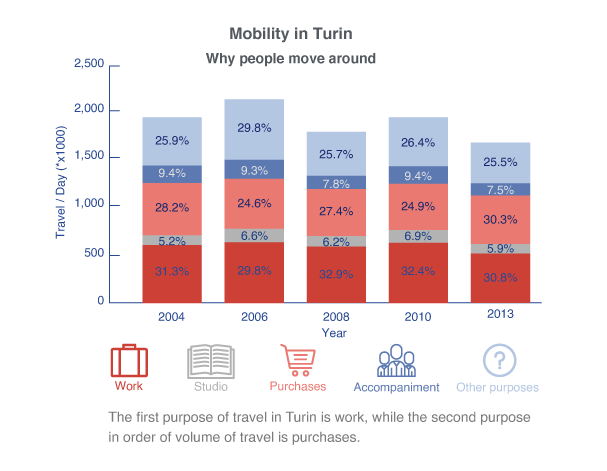
Subsequently we analysed the collected data, identified three user groups, and defined three different personas sharing the requirement of “transporting bulky objects”. One of our personas was Giuseppe. Giusepp’s profile is described below:

Benchmark
We evaluated “Enjoy” a renowned car sharing service in Turin and found deficiencies that could be eliminated with our future mobility experience solution.
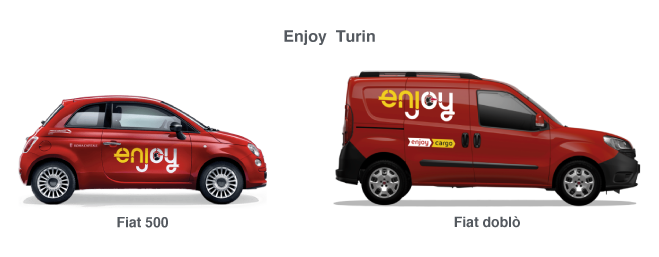
Insights
According to our personas’ requirements and the problems discovered in Enjoy, we generated a concept focused on:
Customization
Space
Modularity
Our aim was to create an amazing, relaxing and joyful experience.
From Findings To Features
The project goal was achieved through the creation of a customisation app and the easy modification of the car physical interior space.
I developed Pop Up next app, which allows the user not only to select the type of trip (Pop Up, Pop Up Cargo or Pop next delivery), book the trip and choose method of payment; but also customize the interior environment of the car by selecting his favorite music, colors, activities and apps of interest (e.g social and entertainment apps).

Welcome
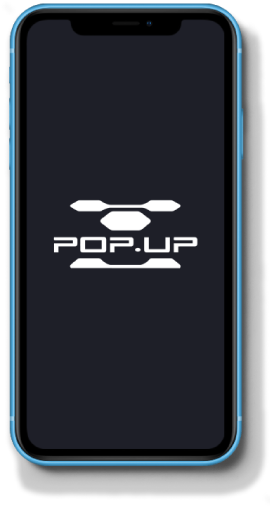
Sign Up
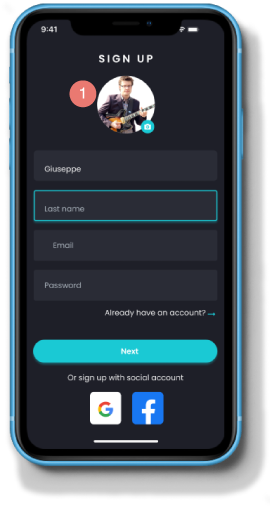
Preferences
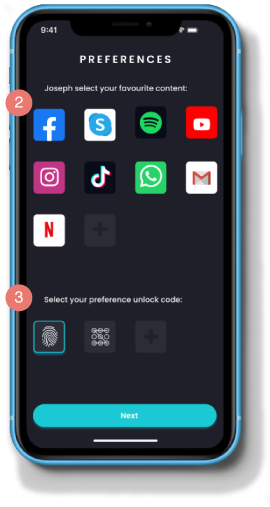
Photo: Provide visual identification for the user when he is using the app and the screens inside the car.
Preferences content: Establish apps and functionalities that will be connected and shown on the screens.
Unlock code: Give the possibility to select which type of code the user will prefer to use. It can be a code traced on a panel, a numeric pin, or fingerprinting.
Select a specific car service
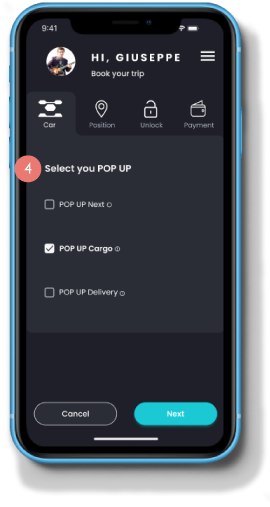
Choice of route
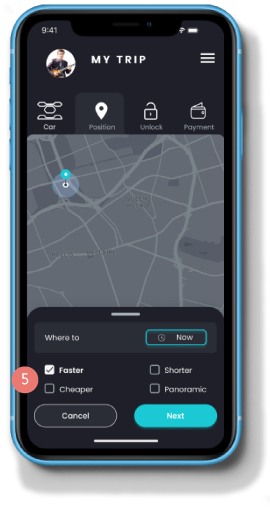
Schedule a trip
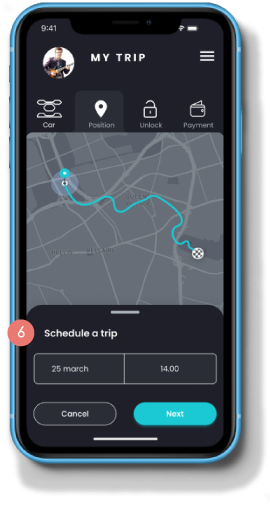
POP UP type: Pop up service has 3 types of cars, standard, cargo and delivery. In Giuseppe’s trip, Pop up cargo is the best option to transport his instruments.
Type of trip: The user can customize some features of his journey like price and speed.
Schedule: There will be always available cars if the person books his trip.
Features and devices
Features linked to modification of interior space were based on modular designs (including screens and car seats), thus users could make easy adjustments according to their changing needs. Interaction was based in touchscreens, eye tracking and smart control systems.
Eye tracking
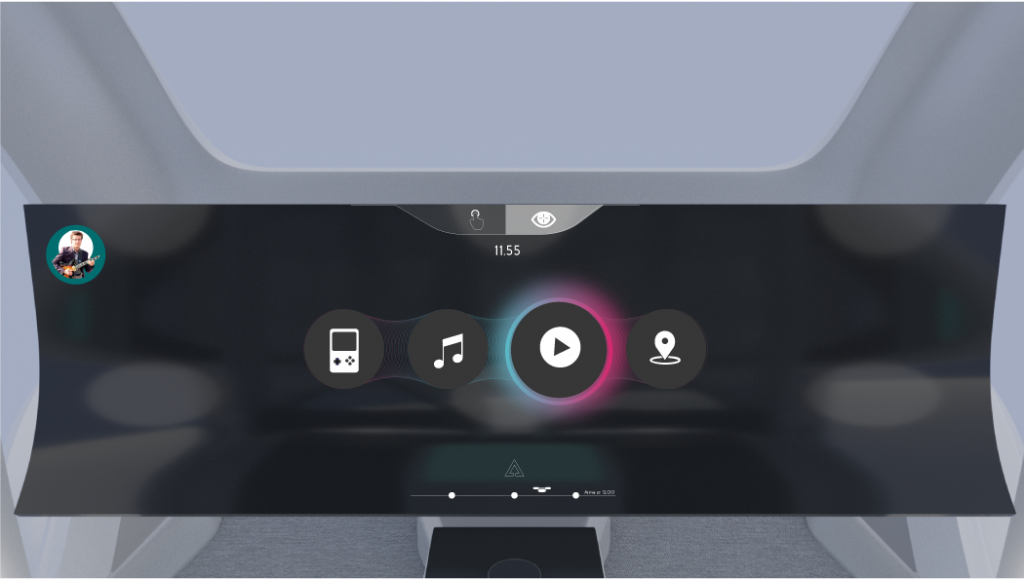
Touchscreen

Center armrest
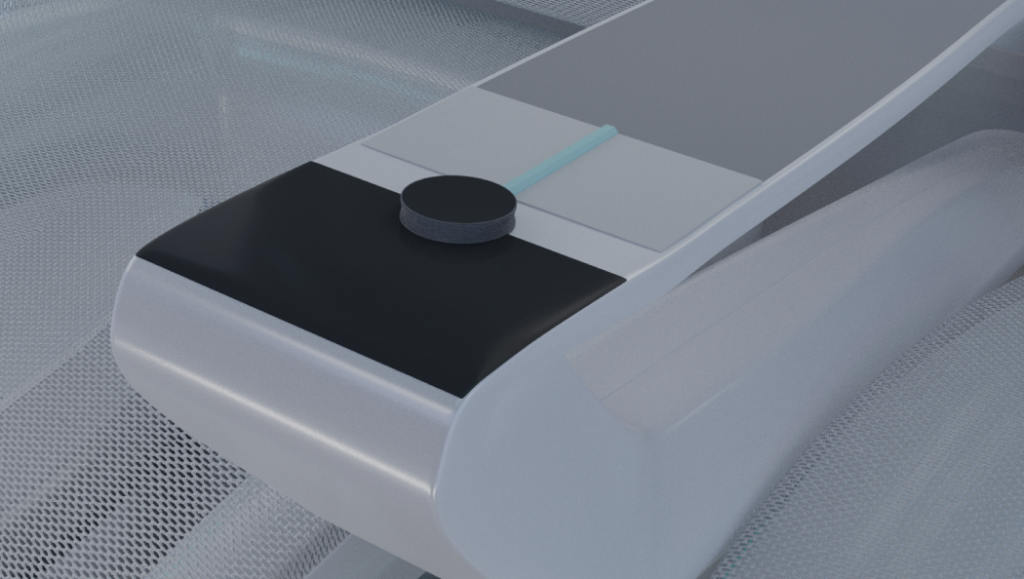
Color/Brightness
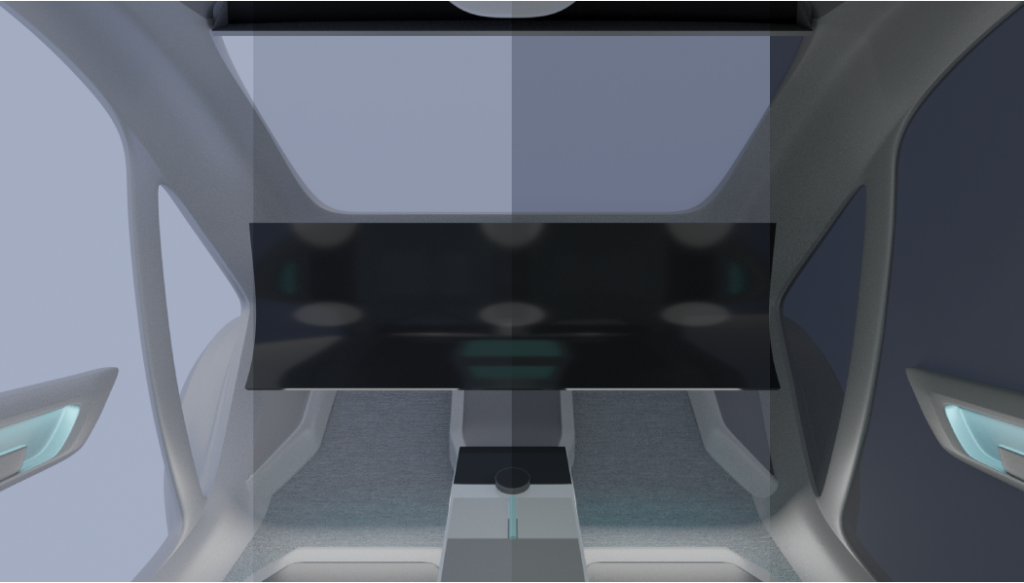
Video Explanation
The following one-minute video shows the result of the experience design we created within the Pop Up Next.
Conclusion
Our redesign user experience created a higher level of customization, new uses and interactions in the car. Pop Up users’ can enjoy the whole experience, regardless of the level of expertise in technology.
The client was highly satisfied with the UX solution. This project validated the importance of user centered design because all the ideas were based on users’ needs and their motivations. Teamwork and trust was key in this successful project.

